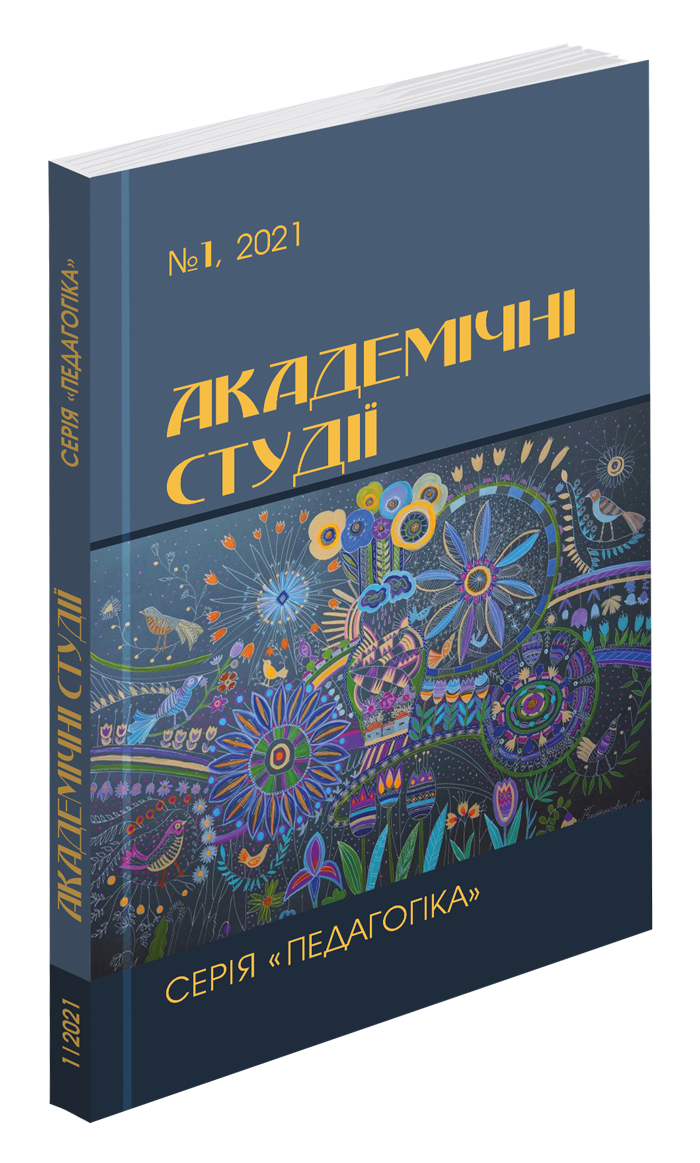Abstract
The article provides a theoretical analysis of the “value” concept, as well as its impact on the peculiarities of pedagogical activities. It is noted that values are deep human desires for the nature of interaction with the world, with other people and with themselves. It is established that values are a reflection of what a person wants to develop in his life, in the structure of his personality, what he wants to defend. It is the values that determine a certain direction of the life strategy. A survey of future teachers was conducted to understand the concepts of “goals” and “values”, their differences, the role in the life of personality and the delineation of their own values. The result of the survey showed a lack of clear knowledge about these concepts in 90% of respondents. A comprehensive training lesson was developed, which was conducted in three stages: acquaintance with a profound list of life values; an analysis of your own life values; selection of the most relevant areas of life in the current period of time; building of the congruent goals to improve the quality of life, based on an individual value system; outlining of a plan for achieving goals in the SMART system. As a result of the training session, we received a great amount of information on the peculiarities of the value orientations of future teachers. The elaboration of the priority values made it possible to single out the most popular of them: health, acceptance, kindness, love, support. The most selected areas of life that are the most relevant today are family relationships, relationships with friends, relationships with one's own body, spirituality, leisure, work and professional development. Students found it difficult to set goals in the SMART system, guided by their own values, which took a lot of time and personal consultation. As a result of work, students formed knowledge about the concept of values and their role in life of the personality, an awareness of respondents about their own value personality structure was increased, the skills of forming goals that are congruent with their own values were improved, which was a powerful motivating factor for meaningful, harmonious and productive life.
References
Павелків Р.В. Проблема розуміння та утвердження цінності особистості сучасним педагогом. Оновлення змісту, форм та методів навчання і виховання в закладах освіти. Рівне : РДГУ, 2017. Вип. 17. С. 3–6.
Панасенко Е.А., Романенко К.С. Формування системи фахових цінностей у майбутніх учителів початкових класів: аналіз теоретико-методологічних засад. Молодий вчений. Херсон : ТОВ «Видавничий дім «Гельветика», 2017. Вип. 9.2 (49.2). С. 34–37.
Harris, R. (2019). ACT made simple: An easy-to-read primer on acceptance and commitment therapy. New Harbinger Publications. 265p.
Sahin, Ü. (2019). Values and Values Education as Perceived by Primary School Teacher Candidates. International Journal of Progressive Education, 15(3), 74–90. URL: https://files.eric.ed.gov/fulltext/EJ1219123.pdf (Last accessed: 29.03.2021)
Wang, H., Hall, N.C. (2019). When “I care” is not enough: An interactional analysis of teacher values, value congruence, and well-being. Teaching and Teacher Education, 86. URL: https://www.sciencedirect.com/science/article/abs/pii/S0742051X18315312 (Last accessed: 29.03.2021)
Bonneville-Roussy A., Bouffar T., Palikara O., Vezeau C. (2019). The role of cultural values in teacher and student self-efficacy: Evidence from 16 nations. Contemporary educational psychology, 59. URL: https://www.sciencedirect.com/science/article/abs/pii/S0361476X18303023 (Last accessed: 29.03.2021)
